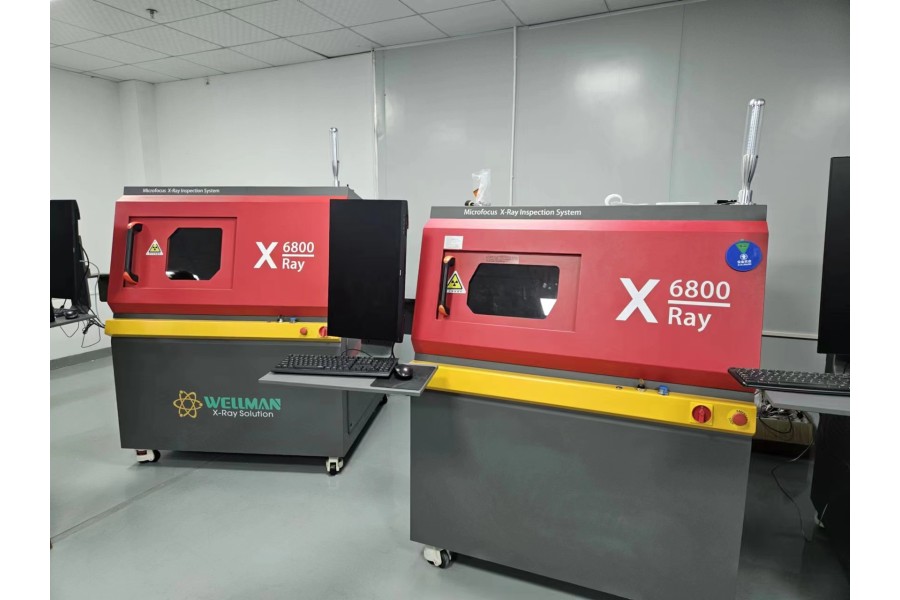Skip to contentHow to Find the Suitable Industrial X-Ray Machines?
wellman2023-12-28T17:40:31+08:00Are you on the hunt for the ideal industrial X-ray machine for your product inspection needs? Navigating the diverse landscape of these high-tech devices can be daunting, but fear not! In this article, we’ll break down the intricacies of choosing the most suitable industrial X-ray machine for your specific requirements. Let’s embark on this journey to unravel the mysteries of product inspection and ensure you make an informed decision.
Before diving into the selection process, let’s grasp the fundamentals. Industrial X-ray machines are cutting-edge devices designed for non-destructive testing and quality control. They use X-rays to inspect the internal structure of objects, revealing hidden defects or inconsistencies. This technology has become indispensable across various industries, from manufacturing to electronics, ensuring the integrity and safety of products.
Key Considerations When Choosing an Industrial X-Ray Machine:
Product Type and Size: When selecting an industrial X-ray machine, the first crucial factor to consider is the type and size of your product. Different machines are tailored to handle specific materials and dimensions. Whether you’re dealing with electronics, automotive parts, or food packaging, choose a machine that aligns with your product characteristics.
Resolution Requirements: The level of detail you need in your X-ray images is another critical consideration. Higher resolution machines can detect smaller defects but may come at a higher cost. Assess your quality control needs to strike the right balance between precision and budget.
Throughput and Speed: Efficiency matters in the industrial world. Evaluate the throughput and speed of the X-ray machine to ensure it aligns with your production demands. A well-matched machine will enhance productivity without compromising on inspection accuracy.
Radiation Safety Compliance: Safety is paramount when dealing with X-ray technology. Ensure that the chosen industrial X-ray machine complies with radiation safety standards. Familiarize yourself with local regulations and certifications to guarantee a secure working environment.
Ease of Integration: Seamless integration into your existing production line is vital. Opt for an industrial X-ray machine that can easily integrate with your workflow without causing disruptions. This ensures a smooth transition and minimal downtime during implementation.
Cost and Budget Considerations: Budget constraints are a reality for most businesses. Evaluate the cost of the industrial X-ray machine against your budget while considering the long-term benefits it brings to your quality control process.

Conclusion: Selecting the right industrial X-ray machine involves a delicate balance of technology, functionality, and budget. By understanding your product’s unique needs and considering key factors like resolution, throughput, safety, integration, and cost, you can make an informed decision that aligns with your business goals. Remember, investing in the right technology today ensures a reliable and efficient quality control process tomorrow.
FAQs:
Q: Are industrial X-ray machines safe to use in manufacturing environments? A: Yes, industrial X-ray machines are designed with safety in mind and comply with strict radiation safety standards to ensure the well-being of operators and the workplace.
Q: Can an industrial X-ray machine handle different types of materials? A: Yes, industrial X-ray machines are versatile and can be configured to inspect a wide range of materials, including metals, plastics, ceramics, and composites.
Q: What is the typical lifespan of an industrial X-ray machine? A: The lifespan varies depending on usage and maintenance. However, with proper care, industrial X-ray machines can last for many years, providing reliable service.
Q: Can I integrate an industrial X-ray machine into my existing production line? A: Yes, many industrial X-ray machines are designed for seamless integration, minimizing disruptions to your production process.
Q: How often should I calibrate my industrial X-ray machine? A: Calibration frequency depends on usage and manufacturer recommendations. Regular calibration ensures accurate and consistent results, typically done annually or as specified by the manufacturer.
Share this to your social media






